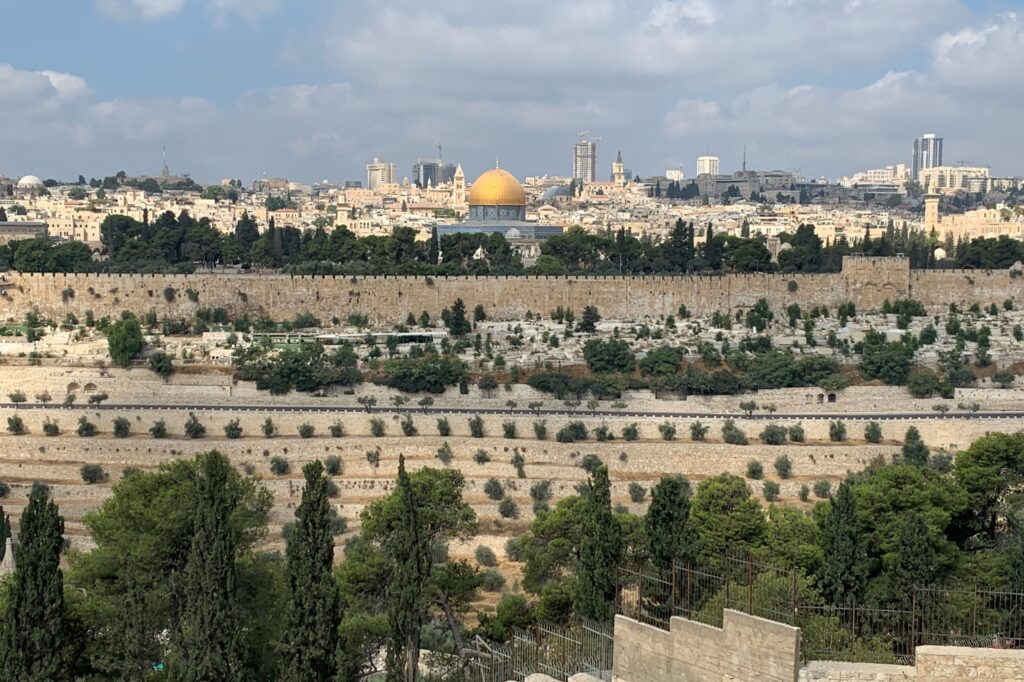Coming within sight of the city, He wept over it and said “If only you had known the path to peace this day, but you have completely lost it from view”.
Luke 19:41-42
This iconic photo of modern-day Jerusalem was taken during my pilgrimage to the Holy Land at the spot where Christians believe Jesus Christ wept over the city’s coming destruction by the Romans. The golden dome is the Dome of the Rock, where Muslims believe Muhammad ascended to heaven. What is less obvious is that it is built on the Temple Mount, which is where the Jewish temple used to stand before the city’s destruction. Behind the Dome of the Rock is the Church of the Holy Sepulchre, the site where Christians believe Christ died and rose from the dead. The wall immediately in front of the Golden Dome was built by the Ottoman Sultan Suleiman the Magnificent on top of the remnants of the walls of the former Byzantine, Roman and Jewish rulers of the city.
The photo illustrates the sad history and current reality of Israel, Palestine and the entire Middle East. Whether it was the Persians, the Romans, the Turks or others in between, the region has been the crossroads of the world and the battleground of political and religious empires for millennia. Each outsider won a temporary victory only to be displaced by later, more powerful newcomers. Like the layers of Jerusalem’s wall, the rivalries and resentments from these conquests run deep and are part of the everyday life of the people.
Recent history shows that progress in untying this Gordian knot of conflict only occurs when one of the leaders in the area courageously and publicly acts. The Camp David Accords hosted by President Jimmy Carter that produced the Egyptian-Israeli peace treaty were possible only after President Anwar Sadat’s courageous trip to Tel Aviv to meet Israeli Prime Minister Menachem Begin. This peace has now held for over four decades. In contrast, The Oslo Accords of 1993 that created the Palestinian Authority were initially negotiated in secret between Israel and the Palestinian Liberation Organization rather than through a similar public initiative. While the agreement resulted in the creation of the Palestinian Authority, the corresponding lack of commitment on both sides has been reflected in Israel’s settlement policy and the continuing attacks on Israel by Hamas and others terrorist groups.
When weighed along with the disastrous effects of our military interventions in Lebanon, Iraq and Syria, the lessons become clear. The US cannot bring a peace to the Middle East unless the parties are first willing to take the risks of peace themselves Worse, direct military intervention simply adds a new layer on to the ancient piles of resentment and conflict. This land deserves our prayers for peace, but realism and a certain amount of humility must necessarily temper America’s involvement in the region.


One thought on “Dominus Flevit”